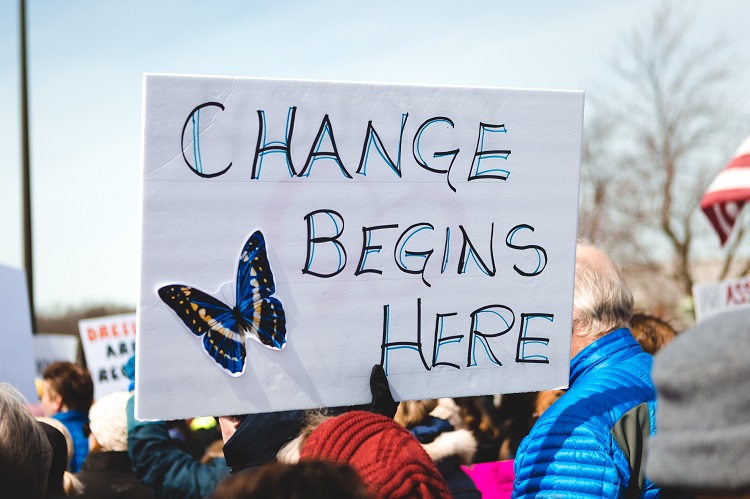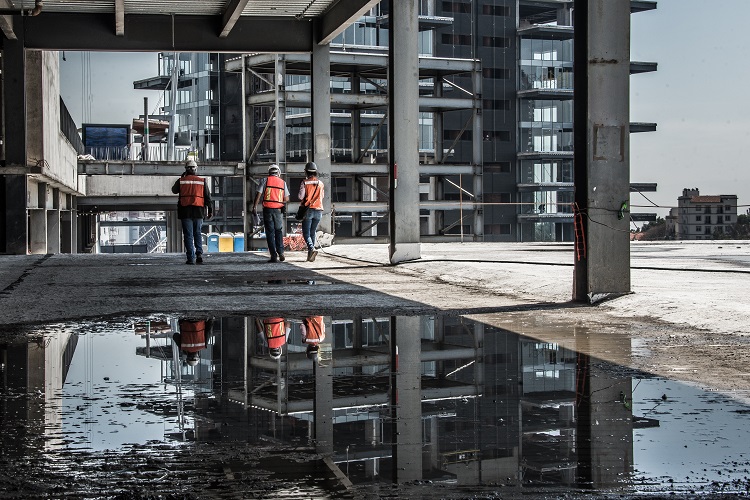As a teen I felt unfortunate to have parents that valued hard work. Why couldn’t mom and dad just give me the stuff I wanted? To my perpetual dismay, my parents thought actions spoke louder than words. My parents’ old fashioned ideas resulted in a litany of summer jobs that were the epitome of irksome. I don’t remember if it was when I was painting fences, emptying latrines, or flipping burgers that I made two promises to myself: One, I will get a college degree. (How glorious would it be to spend 8 hours a day in an office escaping the sweltering summer heat?) Two, I will pay someone else to do any hard work that I don’t want to do. Now that I have a Ph.D. in Economics I can justify the first promise as an investment in human capital and the second as a commitment to being a job creator.
Fast forward to a month ago. My wife and I have been saving for some time to take a vacation to Hawaii. I woke up one morning to find out that Mother Nature had a different plan for this little nest egg; a new fence. Oregon’s rain had reduced our fence to a rotten mound of lumber. Having worked in fencing in high school I had no desire to put my skill set to use. Fencing is really hard work—imagine a World’s Strongest Man Contest with a backyard motif. After getting a few estimates I realized we couldn’t afford to go to Hawaii and replace the fence. This is exactly the type of tradeoff that is better left to an economics course than confronted at the kitchen table with my wife.
Just as my wife and I had accepted that Hawaii was not to be; our fortunes changed. My neighbor called to tell me he was going to fix the fence. I was immediately grateful for his initiative and volunteered my assistance. So on a hot summer day we got to work. It was brutal, just as I remembered, and truth be told I was doing the easy stuff. My neighbor, his father, and brother did most of the hard work. As the fence neared completion I was giddy, Hawaii was still a go. As I dreamed of turquoise water and white sand beaches I realized that the experience of rebuilding my fence provided a few lessons for one of the biggest social questions of our day: What will technology do to labor?
To my 21st century sensibilities, there was no high-tech equipment used to repair the fence. No apps, algorithms, or artificial intelligence did the work for us. But you don’t have to go back too far in history for the hand drill, auger, and circular saw we used to be miracles of ingenuity. Why haven’t the mechanical marvels of yesterday led to massive levels of unemployment? Will the technology marvels of today be different? It certainly seems possible.
The fear that labor saving devices will cause widespread unemployment is quite reasonable, but I believe ultimately misguided. There are many reasons behind my sentiment but I will only present two. The first relies on the economist’s tool of general equilibrium analysis. For the purposes of this post it’s sufficient to think of general equilibrium as the notion that markets are connected. For example, if gas gets more expensive people may start buying hybrids and selling SUVs. If firms no longer need as many workers to dig holes because they’ve invested in augers the economy will adjust. Perhaps there is an increase in demand for workers that can use an auger, or workers that manufacture the auger, or retail outlets that rent the auger, etc. You get the idea. For every labor market that falls victim to Joseph Schumpeter’s “creative destruction” it seems that another is created. It wasn’t too long ago that most of America’s labor force was employed in agriculture. This is no longer the case. It isn’t the case that agriculture is less important, we’ve just become much more efficient at growing our food.
But why do markets adjust in this way? The answer to this important question brings me to my second point. The money I saved by not hiring a contractor did not vanish into thin air. Broadly speaking, there are two things I can do with my income, save it or spend it. By not spending money to repair my fence I was able to put it to another use. I didn’t support a local contracting job but rather one associated with Hawaii’s tourism industry. Had I saved the money, through the miracle of finance, it would have eventually turned into an investment. Either way jobs are supported and income generated.
John Kenneth Galbraith once said, “The point of economic forecasting is to make astrology seem respectable.” I can’t resist the chance to contribute to this grand tradition with my own prediction. As IT becomes more and more a part of our daily lives it will not lead to widespread unemployment. Why? Because of the lessons of my fence. New labor markets will be created because we will keep saving and spending our incomes. And, don’t tell my teenage self this, hard work will still be rewarded.



